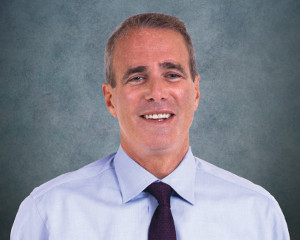3 keys to CarMax’s ongoing used-vehicle success

I typically find it’s time well spent to keep an eye on how CarMax is doing. That’s why I reviewed this week’s release of CarMax’s second-quarter results and related earnings call transcript.
Three items caught my attention and seemed relevant for all used-vehicle retailers:
1. A disciplined, efficient, technology-driven vehicle purchase process.
Dealers and their buyers sometimes marvel at how much CarMax buyers seem willing to pay in the lanes for vehicles. During the earnings call, CarMax CEO Tom Folliard offered a quick overview of the company’s auction purchase process — an impressive approach that suggests their buyers know exactly what they’re doing:
“We are much more organized today than we were 10 years ago. We’re much more analytical about the way we approach car buying at the auction, and I think we’re in a better position today to optimize the inventory that we acquire at the auction because of all the analytics that we’ve put into it and all the digital capabilities that we’ve given our buyers. Our buyers are now all using tablets at the auctions. We’re tracking every single car that a buyer at CarMax looks at at the auction and deciding whether or not that car is worthy, and then the next time a buyer goes to the auction, they don’t have to look at that same car and we’re saving an enormous amount of time in evaluating cars at the auction. We have all the auctions on a program where the CarMax buyers are buying under one kind of generic card, and we can analytically decide where those cars go later.”
2. A robust “we’ll buy your used car” program.
I initially viewed CarMax’s reported 8-percent increase in wholesale unit sales and an 18-percent increase in wholesale profit ($951/car in the second quarter) as troubling signs. After all, CarMax is in the retail car business. Then I remembered: They’ve long touted the “we’ll buy your car even if you don’t buy ours” promise for years. The wholesale volume and profit increases reflect the success of this committed initiative more than any retail shortcomings. CarMax’s effort also signals its belief that engaging a customer in the dealership, even if they only want to sell a clunker, is an opportunity to seed a future retail sale — a useful insight for dealers struggling to make their own off-the-street purchase programs more successful.
3. A recognition that today’s buyers are different.
CarMax has embraced the idea that today’s buyers would welcome the opportunity to complete at least some parts of a vehicle purchase online — and they will reward dealers who do so. Here’s a quick overview that Folliard offered in response to an earnings call question:
“What we are trying to do is make sure our customers can do as much of the transaction as they want to do from home. We’ve definitely seen the sentiment shift where customers are looking to do more and more research, more and more pieces of the transaction from home, and in some cases the entire transaction from home. Our current capabilities are our customer can obviously do all kinds of inventory searches … We also give the customer the ability to put a car on hold. We give the customer the ability to transfer a car. If it’s a paid transfer, they can do it with a credit card without speaking to anybody and have that car transferred to the store of their choice.
“They can fill out a big chunk of the paperwork from home. We have tested online credit applications, and we are continuing to enhance our capabilities there. We’ve seen some start-ups and some smaller competitors that are doing kind of beginning-to-end transactions online. I don’t think anybody is in a better position than we are to be able to do those things, and those are some of the things that we’ll continue to work on and continue to evaluate as our business grows.”
The key point here is that CarMax is going further than other dealers when it comes to facilitating deals online. My colleague, Mike Burgiss of Cox Automotive’s MakeMyDeal, says it’s not uncommon for dealers to offer online tools, but they use the tools to generate leads, not actually work deals. “This remains a disconnect for many dealers, and an opportunity for those who make the shift to what I call a ‘connected commerce’ model for selling cars,” he says.
As I finished my review, I couldn’t help but think that while some dealers might not like CarMax, it would be foolish to ignore the rationale and reason behind their ongoing success.
Dale Pollak is the founder of vAuto. These entries and Pollak’s entire blog can be found at www.dalepollak.com.


